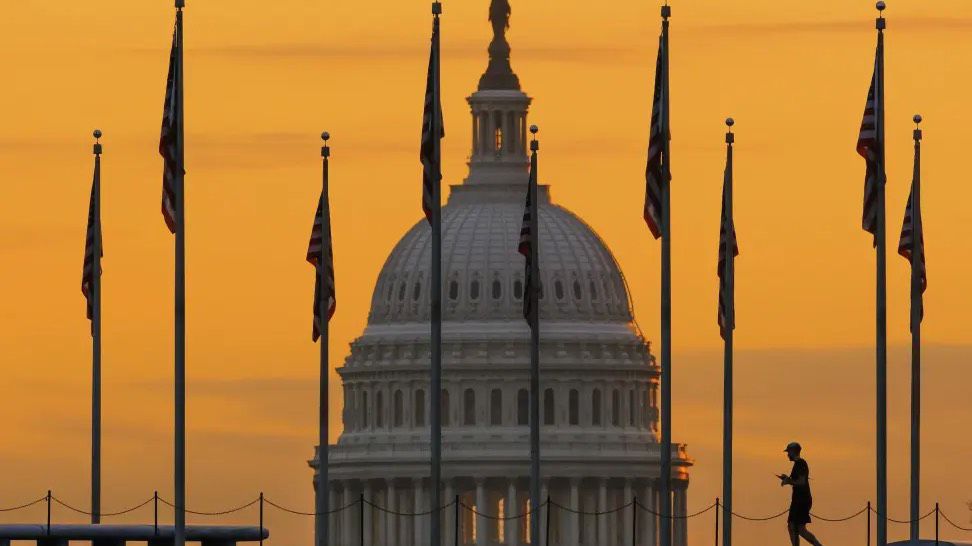The House Freedom Caucus this week unveiled its official position on how to tackle the approaching deadline to avoid a government shutdown this fall – a situation that is likely to require leaders in Washington to make a key decision in the heat of the 2024 election.
In a statement on Monday, the ultra-conservative group told Republicans leaders in the House that if a short term funding patch is needed to keep the government afloat, it should push the deadline until after the election and into the new year, when a fresh Congress will be sworn in and a new administration will occupy the White House.
Such a move, the House Freedom Caucus said, will allow Congress to avoid a “lame duck omnibus” in November or December that would keep government spending at levels approved by President Joe Biden’s Democratic administration and a Democratic-controlled Senate for the entirety of the next fiscal year, when it’s possible former President Donald Trump could be back in the White House.
The group also pushed House GOP leaders to include a Republican-backed bill, the SAVE Act, in any short-term funding measure – known as a continuing resolution – to keep the government funded. The SAVE Act, which seeks to ban non-citizens from voting in federal elections, which is already illegal, passed the Republican-led House last month with the support of a few Democrats but has not moved forward in the Senate.
The bill has also served as a messaging vehicle for Republicans to criticize Democratic leadership on immigration and the border.
Lawmakers are staring down a Sept. 30 deadline to pass a funding deal and avoid a government shutdown when Congress returns from its August break.
The chances of both chambers of Congress coming to an agreement on a budget for the full fiscal year starting Oct. 1 and getting the approval of the White House by the end of September is unlikely, meaning it is expected lawmakers will need to pass a stopgap measure of some length. A short term measure could push the deadline later into the fall such as to a date in November or December or past the election and into the new year, leaving the full fiscal year funding fight for a new Congress and administration.
Washington relied on multiple stopgap funding measures for the fiscal year that ends in September to keep the government afloat as it battled for months to come to an agreement on a budget for the full year. They eventually passed this year’s budget in March.
In the past, Congress has relied on end-of-year omnibuses, which wrap all funding and other measures into one sweeping bill, to keep the government funded.



